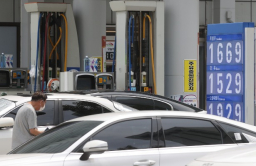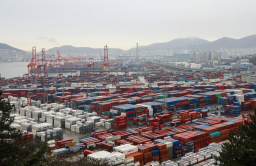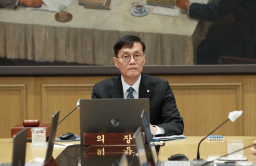-
KOSPI 2812.05 +41.21 +1.49%
-
KOSDAQ 756.23 +6.02 +0.80%
-
KOSPI200 376.54 +6.64 +1.80%
-
USD/KRW 1373 3.00 -0.22%
S.Korean think-tank lifts inflation forecast on oil prices
Economy
S.Korean think-tank lifts inflation forecast on oil prices
KDI says a rate cut is not necessary; it keeps 2023 economic growth forecast with expectations of stronger expansion in H2
By
Aug 10, 2023 (Gmt+09:00)
2
Min read
News+
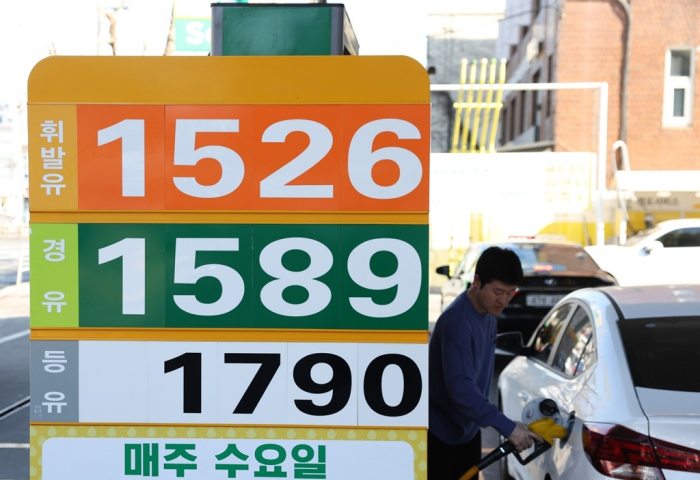
A South Korean government think-tank has raised its inflation prediction for this year due to the recent rise in oil prices and expectations that Asia’s fourth-largest economy will rebound in the second half, dampening calls for an interest rate cut to shore up an economic recovery.
The Korea Development Institute (KDI) on Thursday said it revised up its forecast for consumer price growth for this year to 3.5% from the previous 3.4% on an increase in raw materials prices, including crude oil.
The KDI also said the economy was likely to expand by 2% in the second half, faster than the 0.9% rise in the first, maintaining the institute’s 2023 growth forecast of 1.5%. That was higher than the 1.4% prediction by the International Monetary Fund and the Bank of Korea.
“It is not significantly necessary to cut the benchmark interest rate as we raised the inflation forecast,” said Jung Kyu-Chul, a senior fellow at the KDI’s macroeconomic analysis and forecasting office, when asked about expectations of monetary policy easing within this year.
“It is not much different than the previous policy direction we mentioned in May,” Jung said, referring to its earlier call to leave the policy borrowing cost unchanged.
Some economists and financial market analysts have been expecting the BOK to cut the base interest rate this year despite the central bank’s hawkish stance as the economic recovery has yet to gather pace and inflationary pressure continued to ease.
BOK Governor Rhee Chang-yong kept the door open for another rate hike last month after the monetary authority left the base interest rate unchanged at 3.50%.
Consumer prices rose 2.3% in July from a year earlier, the slowest pace in 25 months, government data showed earlier this month, but inflation was projected to reaccelerate in coming months on higher oil and agricultural product prices.
The KDI raised its forecast of import costs of Dubai crude, South Korea’s benchmark due to the country’s heavy dependence on Middle East oil, to $76 per barrel for 2023 from its prior forecast of $68 as global oil prices rose on strong fuel demand and tight supply.
HEALTHY US ECONOMY TO OFFSET CHINA DEFLATION
South Korea’s economy is expected to benefit from strong growth in the US, the world’s largest economy, which will offset the sluggish Chinese market, the KDI said.
“The Chinese economy did not recover, defying our earlier hopes, but the US enjoyed healthy growth, balancing out the negative factors (from China),” Jung said.
The world’s second-largest economy slipped into deflation with consumer prices down for the first time in more than two years in another sign of weakening demand.
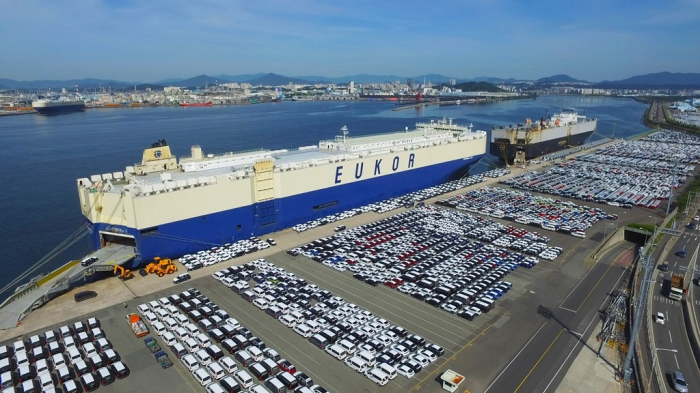
South Korea’s goods exports are predicted to increase by 1.4% on strong overseas sales of automobiles in the second half, double the previous 0.7% growth, while the construction sector is likely to expand by 1.3%, far faster than the prior 0.4% rise, according to the KDI.
The economy may miss the growth forecast if the Chinese economy, South Korea’s top overseas market, slows further, Jung said.
“The economic growth could skid to low-1% once risk factors such as a failure of China’s economic recovery increase,” he said.
Write to Se-Min Huh at semin@hankyung.com
Jongwoo Cheon edited this article.
More To Read
-
Aug 02, 2023 (Gmt+09:00)
-
Aug 01, 2023 (Gmt+09:00)
-
Jul 13, 2023 (Gmt+09:00)


